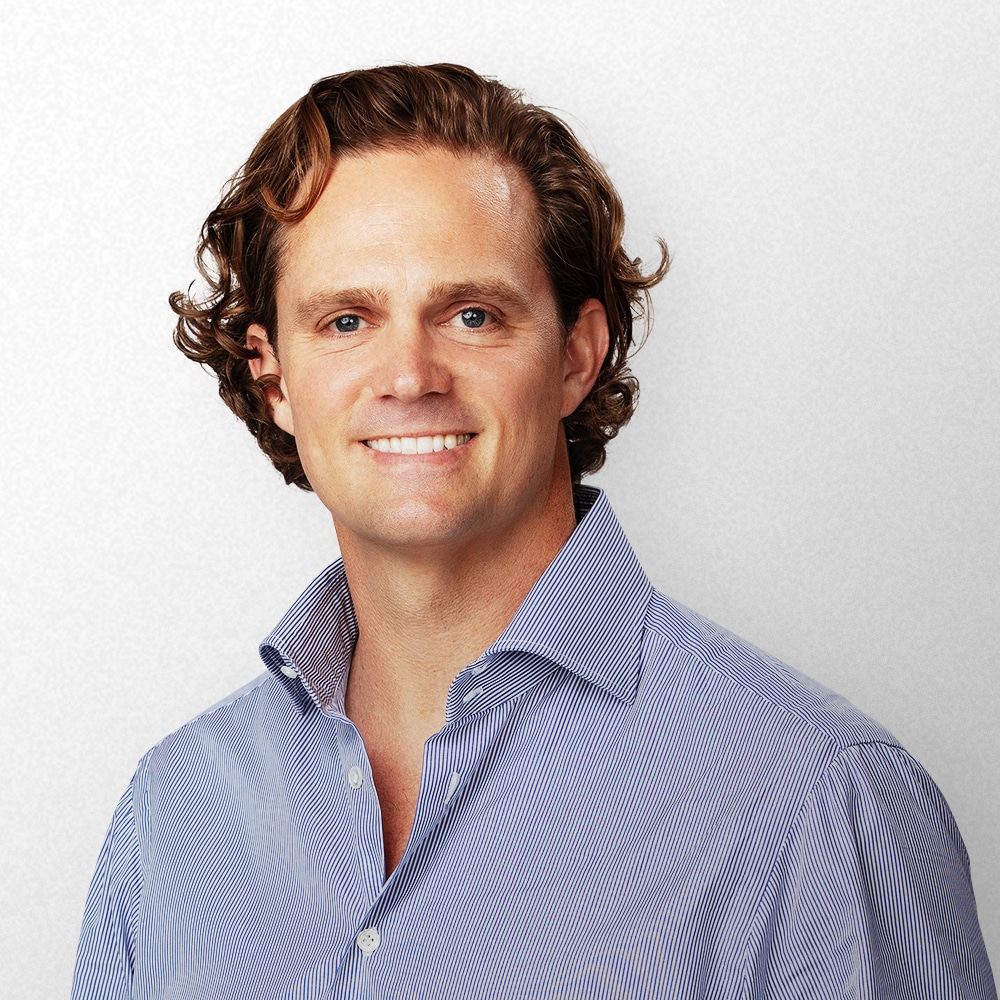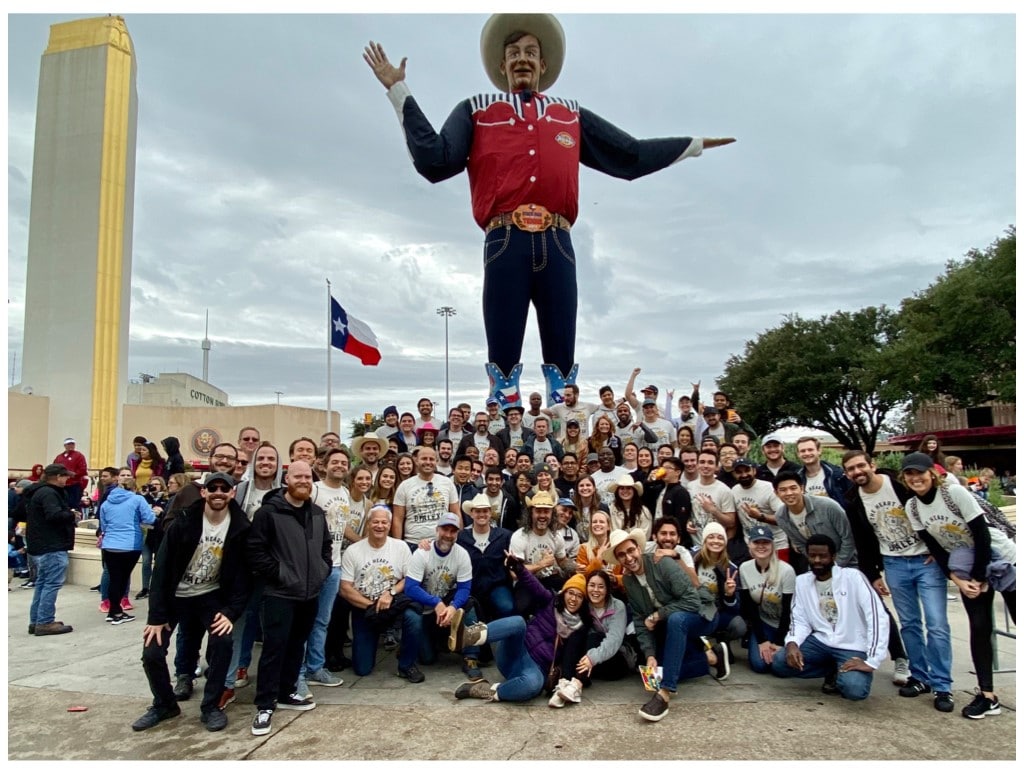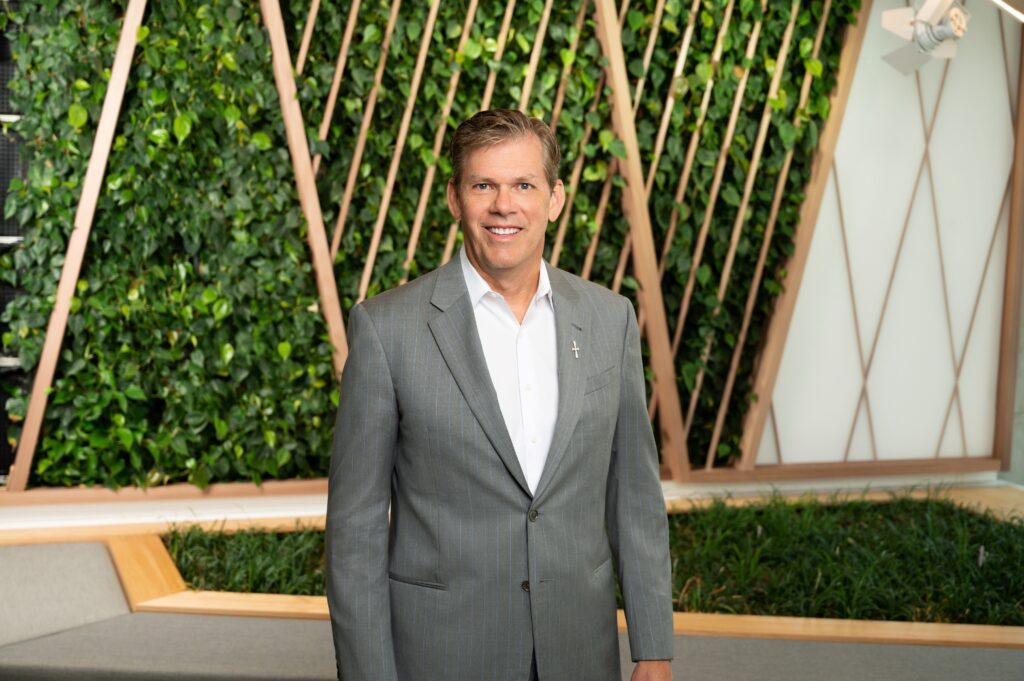Stop Being Surprised! A Conversation with Dialexa CEO Scott Harper

Why are so many companies blindsided when digital natives disrupt their industry? If you ask Dialexa CEO Scott Harper, it doesn’t have to be that way.
In November of last year, Dialexa CEO Scott Harper was sipping coffee and reading the morning news when he came across a certain story—and couldn’t help but chuckle.
The item breathlessly reported that Amazon.com had announced Amazon Pharmacy. This new offering would allow consumers to manage their prescriptions entirely online; Prime members would get fast, free shipping. On the heels of the press release, all the major pharmacy stocks were tanking. Wall Street and the broader market seemed totally shocked.
But this was inevitable and obvious! Harper thought to himself. Why the hell is everyone so surprised?

No one had much excuse for not seeing this coming. All the way back in 2018, Amazon bought up PillPack, a company that bundles all a person’s prescriptions in convenient daily packages and sends them straight to the doorstep. Bezos and crew couldn’t have telegraphed their intentions more clearly.
Harper’s amusement that the market is once again confounded by disruption from a digital native is born of the work he does day in and day out. As cofounder and CEO of Dialexa, he leads a team that aims to “make its clients into great technology companies,” ones that can write the future of their respective industries. That includes holding their own when gargantuan tech natives, the Amazons and Googles of the world, step in. “In most situations, the hardest part isn’t the technology, it’s capturing the market share and customers, which these traditional businesses already have. Owning the future of their industry is there for the taking. It’s a HUGE opportunity for them,” says Harper.
Harper founded Dialexa with Mark Haider in Dallas back in 2010, in that most fabled of startup locales: a home garage. Haider and Harper had previously worked at the same enterprise software company, then quit on the same day. Eleven years on, their venture together employs 250 people and occupies an airy, loft-like office in Dallas’ downtown East Quarter neighborhood. Together, the Dialexa team works with clients, from startups to Fortune 500s, to innovate, design, and build technology products that capture market share and shape the future of industries. (Dialexa employees, under the Dialexa Labs umbrella, even create their own tech products that are sometimes spun into their own companies.)
As Harper explains in the following conversation, what makes Dialexa special is its intense product focus, as opposed to IT- or marketing-led projects that often attempt and fail to deliver the value that product teams deliver. IT and Marketing add tremendous value to businesses, but this isn’t what drives technological advantage for the digital natives. That comes squarely from their product teams, which is a distinctly different function, that has a different approach, offers a different value proposition, and requires different talent and methods– not better or worse, just different. When a company adopts a product-centered approach, they can look ahead, seize these opportunities, and proactively create the future their customers want and need. “You can give your customers the best experience or someone else will. At the end of the day it’s that simple,” says Harper.

Read on for Harper’s advice to CEOs who want to build a game-changing technology product, as well as his thoughts on culture building and his most admired fellow Texas CEO.
Did you grow up thinking you wanted to start a tech company?
Not at all. Growing up in Fort Smith [Arkansas], you don’t see a lot of the technology industry. I was entrepreneurial though. I always had a scheme—maybe even a scam at some points—for making money, whether it was doing yard work, selling mechanical pencils, throwing parties.
How did you get the idea to start Dialexa?
As technology product guys, my cofounder Mark and I thought about a lot of different ideas for a company. While we decided which was the billion-dollar one, we did consulting work. That’s not an uncommon way for people to bootstrap product companies.
We started reaching out to people with the world’s worst sales pitch: “Hey, you guys need help building things. We’re really good at building things.” They were like, “What does that mean?” Fair question! Most assumed we were IT or marketing consultants, but we were product people. That was different, and it was the genesis of Dialexa.
In technology, you’ve got three primary areas of technology: product, IT, and marketing. If you look at Amazon, for example, you’ve got the product teams—the designers, engineers, and product managers who build the ecommerce experience. Then you have the IT group, which handles things like ERP systems, CRMs, and other supporting systems. Then, marketing helps get the word out to customers. Those are distinctly different functions that each provide different value, and not everyone does them equally well. If you have your product team trying to deliver a large IT initiative, it’s like having your house framed by a house painter. And the same would go for using an IT team to build a product. This is far from a knock on anyone, it’s just that you can’t hot swap teams from different business units and wonder why the needle isn’t moving. Put the right team with the right approach on the right project—it’s a right tool for the job conversation.
Every industry is a technology industry. Within this new landscape, no company can compete by only looking at tech through an IT or a marketing lens.
So we felt there was an opportunity to be a partner that uses the techniques and best practices from the digital-native product companies, the world we came from, to drive value for clients. Because tech companies are no longer an industry vertical. Every company is or will be a tech company, whether you’re building cars, selling commercial real estate, or running a pharmacy. And really, it’s not about technology, it’s about providing what your customers want tomorrow, not how you gave it to them yesterday.
We were honestly shocked when we won our first RFP from an enterprise client, partially because larger companies tended to struggle the most to wrap their heads around the need for product focus. We were seven or eight people at the time and up against companies like Accenture and Thoughtworks. Our pitch was very product-oriented and all about product, whereas the others pitched “software development” or “low-cost resources.” That really helped us win the confidence of the client by demonstrating our focus on delivering product excellence and real customer value, not on shipping code, screens and features to meet a spec.
We are still proud of the engineering and design we delivered. That client then asked us, “Could you do this for some of our internal tools?” They felt it would give their people an edge in the market, help them do things better, faster, cheaper. We said, “Sure.” Internal customers are customers too.
From there, we started really honing that message of product focus. We started seeing an appetite from certain buyers for it. Their other vendors may be great for traditional IT or marketing needs, but they also had product needs. In 2010, that was a really unique message. Now you’re seeing Gartner will do a report on a product-centric approach. But most companies are still very early in that journey of achieving product excellence and even earlier in becoming a product organization.
What’s your advice for a CEO or company that wants to start on that journey?
First, you must understand the need for it. It can’t be something you’re doing because some consultant told you to or because everybody else is doing it. You need to know the business outcome you want, and you need a partner who focuses on outcomes versus delivering code or a set of requirements and moves on.
Historically, technology was seen as a cost center, a box you had to check. Companies doing it right today realize that technology is a value driver, the primary way they are going to do business now and in the future. Technology is absolutely going to be a core differentiator—maybe the single biggest one—in every industry in the near-term and long-term future.
Often, incentives aren’t set up for employees to capture the opportunities of technology. If you’re working at a Fortune 100 company with a demanding job and your results are measured by the quarter, are you going to put effort into a big transformational program that will take years to come to fruition? Probably not. Transformation only works when it is an organizational priority.
If you want to be a great technology company, there’s way more to it than hiring designers and engineers. If you don’t do it right, you can be easily outclassed by the digital natives, the next startup, or your competitors who found a way. Companies make excuses like “We don’t move that fast.” Or “we don’t have the budgets for that” or “we can’t do that with our legacy systems”. The customer doesn’t care. Consumers don’t care why you can’t give them a better experience or better value than your competitor—it’s not their problem.
In the pharmacy example, you might hear old-hat excuses like, “We can’t ship prescriptions! What if you had questions about your drugs?” But that’s like the banks telling you, “Don’t you want to talk to your banker?” For most people, it’s a no 99% of the time. They just want to get their pills or their money as conveniently as possible.
These traditional companies, the non-digital natives, now need to think and move fast to create the future of their industries. Somebody’s going to enter that space. Don’t be reactive; you look like you’re just aping somebody else. Own your industry instead of being reactive.
The last thing I’d say is to remember, launch day is Day 0. A product adapts and evolves to drive value for the business. You don’t launch something and put it into maintenance mode and hope for results; we call that the “Field of Dreams” strategy. Real learning starts once a product is launched. That’s when you start getting real data, consumer feedback, market reactions, insights etc. Writing code, designing screens and shipping features is not the end goal… not even close.
What’s the story behind the name Dialexa?
My cofounder had the domain. It was derived from a Greek word that means “to choose.” It just stuck. No crazy branding story. It was unique and we liked it. I won’t try to church up the truth.
Tell me about your leadership style.
I don’t think I’ve mastered the skills of a world-class CEO. I don’t know that I ever will. It’s a process of continuous learning and evolution. As our company has grown, my job as CEO changes continuously. The role of a CEO in a two-person company versus a 250-person company is very different.
Leading with purpose and values toward a defined North Star is important. It’s not just showing up to work for the sake of work. We just had our annual planning session, and that’s an area I’ve got to step up my game on—making sure everybody really understands our core purpose more than ever. If you can’t communicate that effectively, little else matters.
I would say I am aggressive. I’m not necessarily a peacetime CEO. I’m not comfortable sitting in an executive office and just letting things happen. I also try to treat our people here as family. Anybody who’s worked at a company that treated their employees like a commodity knows that it leaves a feeling of emptiness. It’s difficult to make it through hard times when you have that dynamic.
It seems clear that culture is important to your organization. Why was that a particular focus?
Culture defines who we are as a team. A lot of our efforts have been grassroots efforts from employees. We’ve just empowered people to try things—one of our core values is creative freedom. ‘Drinks with Dialexans’ is a YouTube series we do. It’s casual, fun interviews with someone from the team so we get to know each other. That was grassroots. So was Waffle Friday. Not all the ideas work, which is totally fine.
We like to have fun. We do drone races at the office. We’ve gone skydiving as a team. Learning and continuous improvement is a big part of the culture as well. We do a speaker series where we bring in people with outside perspectives on topics like leadership or diversity, equity, and inclusion.

How you approach hiring?
Cultural fit matters to us, but it doesn’t mean everybody has to think and act like me. That would be terribly annoying for everybody. We want people who align with our values.
We ask ourselves, “Is this somebody you want to be in the trenches with? Is it somebody you can count on?” Of course, we also look for skills, but I think one of the things that made Dialexa successful is that we don’t look just for skills—we looked for talent. Those are two different things. Where a person is today is their kinetic energy, but there’s also where they could be, their potential energy. We look for leadership talent too. Leadership is not something for a few people at the top of Dialexa. Anybody here can be a leader.
What is it about Dallas and/or Texas that has been a benefit to you or your business?
When we first started, that just happened to be where we were. For our business, it’s good that Dallas has a lot of big businesses and a great business climate, which not a lot of states can say right now. Texas isn’t perfect, and they certainly can get in the way of certain things, just like everywhere. We don’t have the ocean or mountains. But it’s a big market and a great place to live. I can’t tell you how many people I know who have moved here recently from New York or San Francisco.
Do you have a most admired fellow Texas CEO?
Man, there’s a lot of them. Elon Musk moving to Texas certainly added an interesting character. He’s really pushing the boundaries of things. What I respect is that he’s never complacent. He sees something that isn’t right and breaks that into first principles and challenges things. “Does it have to be that way? Should it be that way?” A lot of people would have been sitting on the beach a long time ago.
Even if I don’t agree with everything he says, you feel like you get genuine answers from him. It’s not like he’s been coached by a PR person. I respect that he isn’t easily swayed or coerced into conformity.






